Politics & Security
Shinzo Abe in China: Risky Move or Well-Thought-Out Strategy?
Published
5 years agoon
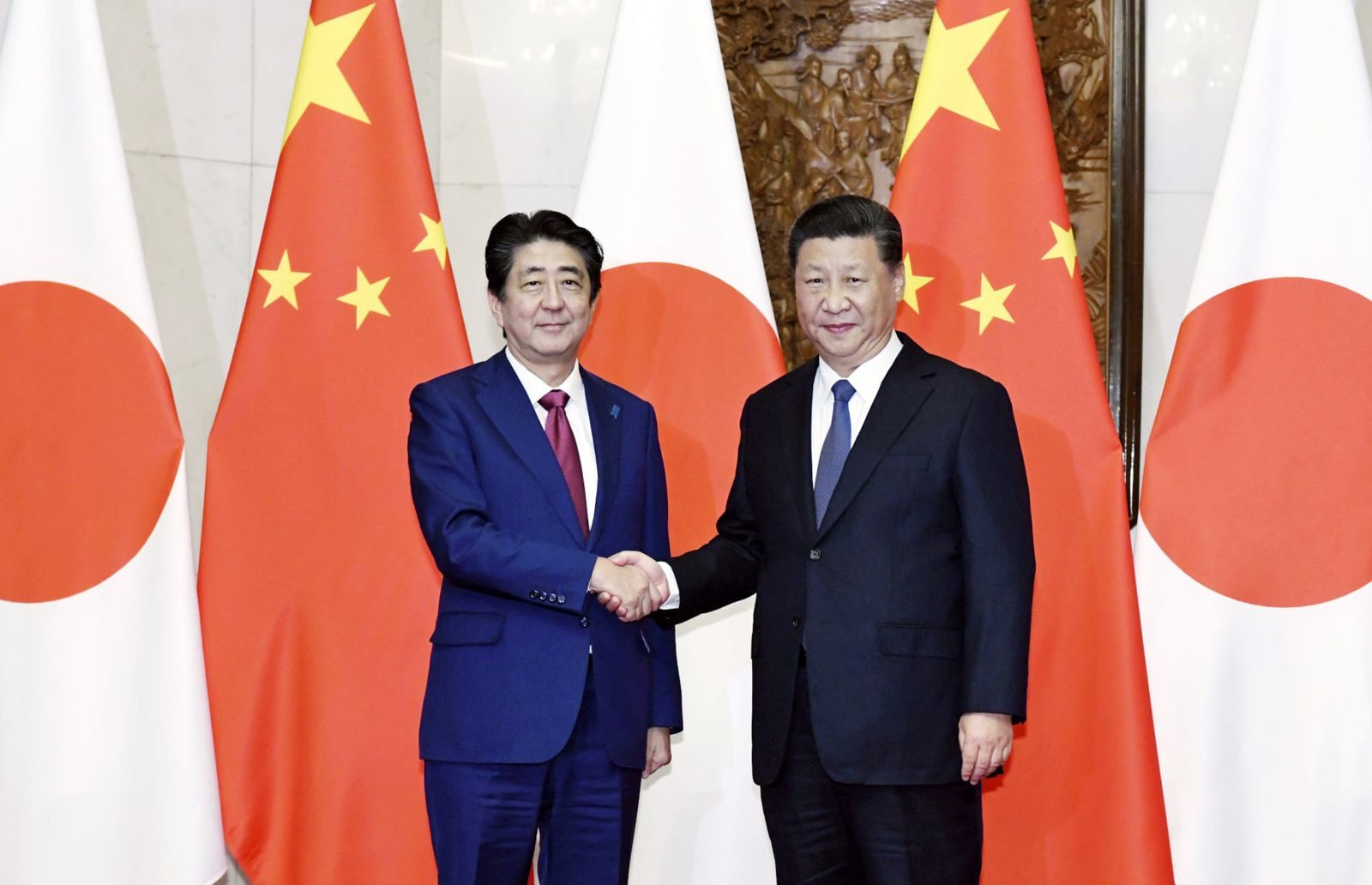
-

- Japan's Prime Minister Shinzo Abe speaks with China's President Xi Jinping (not seen) during a meeting at the Diaoyutai State Guesthouse in Beijing, China October 26, 2018. (© Nicolas Asfouri/Pool via REUTERS)
Prime Minister Shinzo Abe announced bilateral relations with China are “shifting from competition to collaboration” during his recent talks with Chinese President Xi Jinping.
The announcement came on Friday, October 26, during the Japanese leader’s three-day trip to China. The concept is one of the new three-point guiding principles of Tokyo-Beijing relations revealed by the Prime Minister during his trip.
It appears that the trend toward rapprochement between the two countries will most likely be accelerated hereafter.
However, it is imperative for the Japanese government to remain vigilant of China’s moves, given that China has pressed ahead with a strong-arm strategy for several years in both military and economic affairs.
Why, then, has Prime Minister Abe taken a stand to respond in favor of the rapprochement posture of China? He has charted out a clear-cut aim in this respect.
New 3-Point Principles
In his talks with President Xi, the Prime Minister confirmed the three principles intended to guide the bilateral relationship hereafter.
-
Switching from competition to collaboration
-
Becoming partners instead of being threats to each other
-
Developing a free and fair-trade system
In reply to Prime Minister Abe’s overture inviting President Xi to visit Japan in 2019, the Chinese President responded that he would “seriously consider” doing so.
In the meeting, Prime Minister Abe also raised the issue of an unspecified number of Japanese who hav been detained by China on espionage and other charges.
Beijing Summit in the Context of Abe’s Diplomacy
Prime Minister Abe also met Chinese Premier Li Keqiang during his trip.
In their talks, the two reached an agreement on such issues as resumption of negotiations on currency swaps between the Japanese yen and Chinese yuan, intended to be helpful in the event of a financial crisis.
The two were also agreed on holding consultations between defense officials from the two countries during the year. The aim of consultations would be to open a communication mechanism to avoid accidents from clashes in the air or at sea.
Prime Minister Abe has visited a total of 149 countries and regions during a period of about six years since assuming afresh Japan’s top political post in December 2012. The latest trip to Beijing, however, is the first to tackle issues in the bilateral framework.
Beijing had earlier rejected summit talks with Tokyo. The timing of the visit, though, coincided with Beijing’s attempt to warm up bilateral ties with Japan, as if without turning a hair.
In the background of the visit is sanctions pressure on China from the United States that spread from trade to such fields as human rights and security.
Issuing a joint press release with Premier Li after the October 26 talks at the Great Hall of the People in Beijing, Prime Minister Abe stressed the importance of collaboration with the Chinese premier, declaring:
The relations between Japan and China are entering a new dimension right now, and I sincerely wish to see the relationship between our countries make a major step forward by joining hands with Premier Li.
Li, for his part, referred to his visit to Japan in May and Abe’s trip to China this time, noting:
That reciprocal visits of the two countries’ leaders have been materialized within half a year demonstrates improvements of people-to-people relations of our nations, fruits of our peaceful, friendly ties and rising expectations of our joint development.
Holding Chinese Military in Check
Prime Minister Abe and Premier Li shared long hours together, including an unofficial dinner on October 25 and a luncheon the next day.
Prime Minister Abe emphasized his closeness to Premier Li, who is from the Communist Youth League of China that has traditionally placed high importance on China’s relations with Japan.
Premier Li’s relative influence has been rising within the Chinese leadership in the context of the impacts of a trade war between Washington and Beijing and the emerging criticism of President Xi in China’s domestic politics.
Prime Minister Abe also may have aimed at keeping in check the moves of the Chinese military, which is under the command of President Xi.
Moreover, North Korea is undoubtedly a major factor behind Prime Minister Abe’s efforts to strengthen relations with China. It cannot be overstated that a cooperative relationship with China for boosting Japan’s voice on North Korea is important to resolving the cases of abduction of Japanese citizens by North Korean agents.
Walking a Fine Line in Diplomacy and Security
A senior official of Foreign Ministry of Japan has warned, however: “Tokyo must avoid being seen by Washington, currently in rivalry with Beijing, as getting close to China strategically. What’s going on is nothing but the improvement in bilateral ties since Japan, as a matter of course, is not subservient to the United States.” (RELATED ARTICLE: Japan-China Currency Swap Deal Undermines Trust Between Japanese, U.S. Leaders)
This means Japan has chosen to walk a fine, treacherous diplomatic line between frenemy China and Donald Trump’s “America first” agenda.
The next task is one of convincing Washington that Tokyo is just putting its relations with Beijing back on the right track.
In this context, Japan can show Washington it is working to improve the heretofore tense Tokyo-Beijing relationship. This would happen by highlighting the value to China of acknowledging Japan’s economic might. It also includes forging ahead with economic cooperation and currency swaps.
Currency Swaps, OBOR Cooperation Still Risky
There has been concern about the impact of currency swaps on the U.S. sanctions on China. However, as a high-ranking Japanese government official put it: “That is of a nature quite different from a currency swap scheme with South Korea for the sake of unilaterally rescuing South Korea. The envisaged Japan-China currency swap accord is designed, above all, to protect Japanese companies doing business in China.”
But should there be a free-fall in the Chinese yuan, Japan will have to take great risks. It is possible that what would happen subsequently could end up benefiting only the Xi administration.
Meanwhile, Prime Minister Abe spoke to his associates about Japan’s newly cooperative posture toward China’s ambitious economic zone vision, the Belt and Road Initiative (also known as One Belt, One Road). (RELATED ARTICLE: Wait, Japan, Don’t Rush Down China’s ‘One Belt, One Road’ Path)
He is quoted as saying: “It is not that Japan is ready to service China with something for nothing. Japan, instead, is prepared to do in tandem with China something if it’s beneficial to Japan. That’s it.”
It should be noted, however, that Japan’s political and economic worlds tend to lean toward China. If they do so in excess, the consequences for Japan would be perilous.
As if to emphasize the risks, on October 25, even as Prime Minister Abe was on his official visit to China, the Xi administration had China Coast Guard vessels intrude into the contiguous zone around the Senkaku Islands of the city of Ishigaki, Okinawa Prefecture.
Japan should never be off guard and should avoid the trap of intrigue set up by China’s “smile diplomacy.”
(Click here and here to read the related articles in Japanese.)
Author: Takao Harakawa reporting from Beijing.

You may like
-


Challenge Beijing's Coercive Pacific Islands Aid with Balance of Power
-


EDITORIAL | Trilateral Defense an Apt Response to China's Sea Aggression
-


With Kishida and Marcos in Washington, the Three Leaders Pledge to Uphold the Rule of Law in the Indo-Pacific
-


Birth of an Asian NATO: A New Strategic Alliance Emerges Amid Regional Tensions
-


Heita Kawakatsu Says 'Sayonara Shizuoka' After Winning New Maglev Delays
-


EDITORIAL | Why Spare Kishida from LDP Party Funds Mess Fallout?
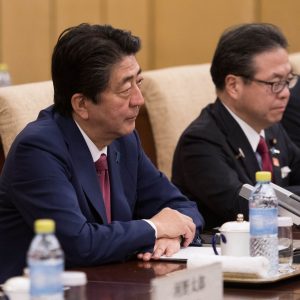
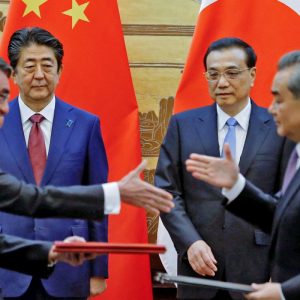
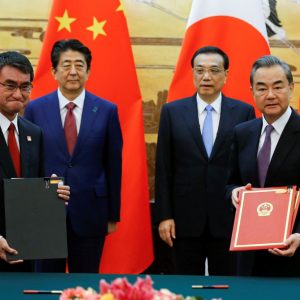
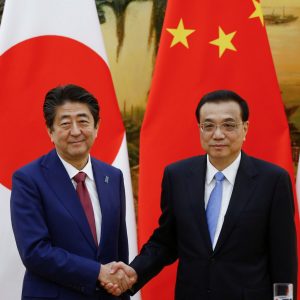
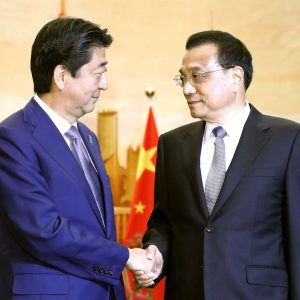
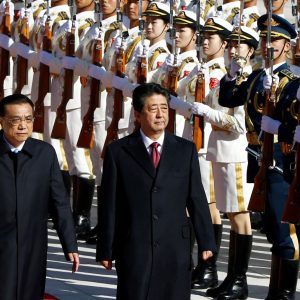




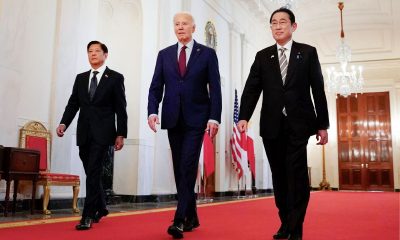

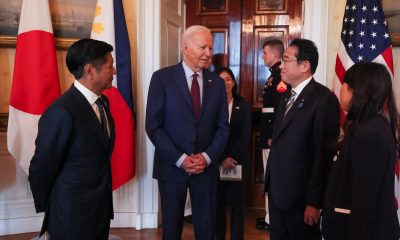

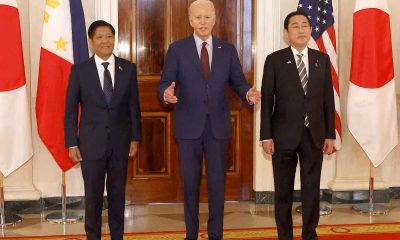

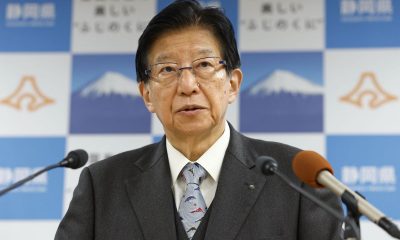

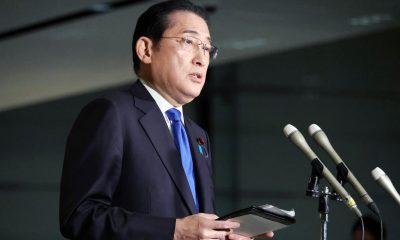


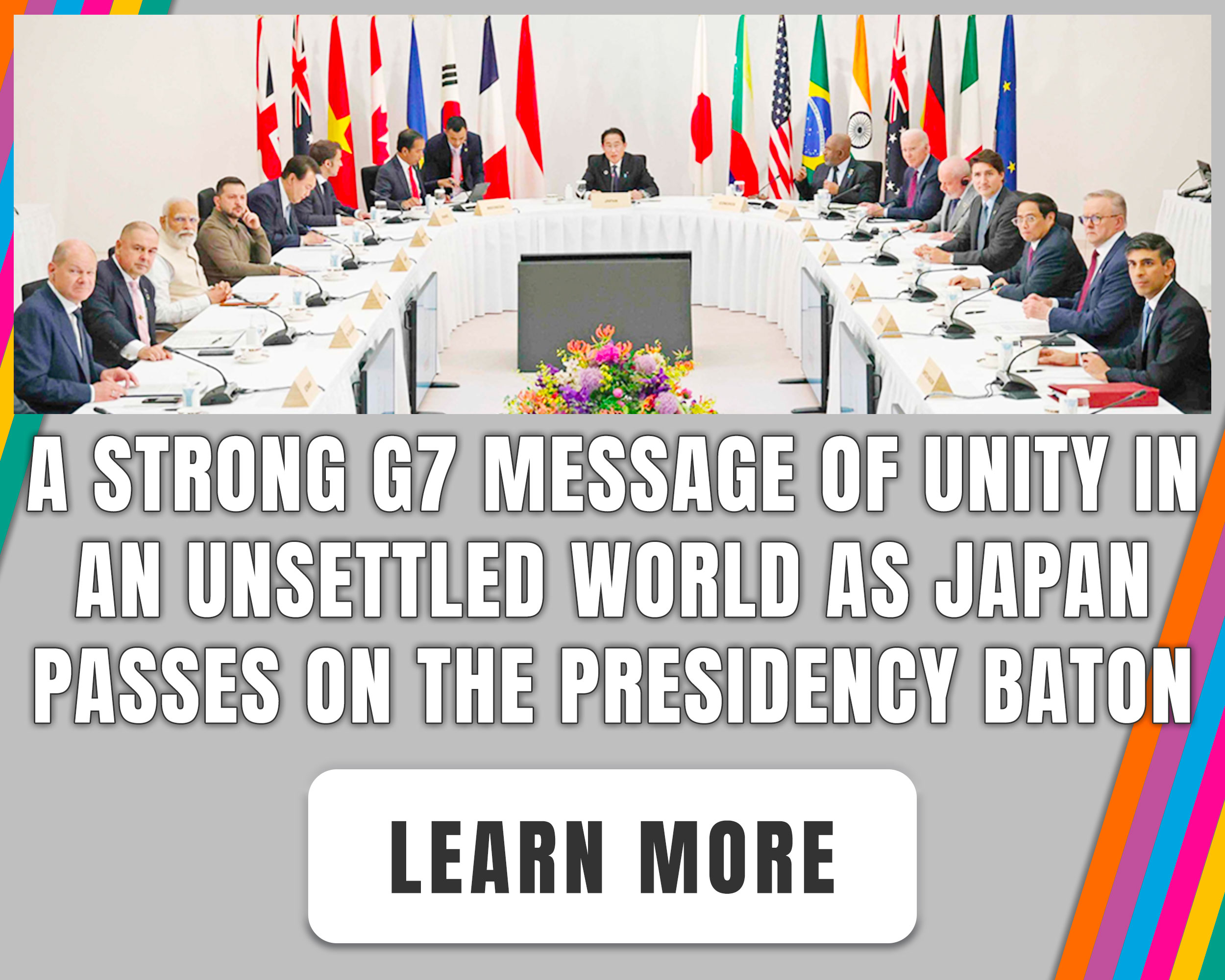
You must be logged in to post a comment Login